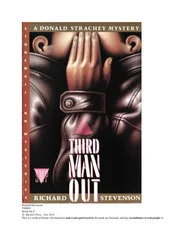CORDATUS, the author's friend; a man inly acquainted with the scope and drift of his plot; of a discreet and understanding judgment; and has the place of a moderator.
MITIS, is a person of no action, and therefore we afford him no character.
THE STAGE. After the second sounding.
ENTER CORDATUS, ASPER, AND MITIS.
COR. Nay, my dear Asper.
MIT. Stay your mind.
ASP. Away!
Who is so patient of this impious world,
That he can check his spirit, or rein his tongue?
Or who hath such a dead unfeeling sense,
That heaven's horrid thunders cannot wake?
To see the earth crack'd with the weight of sin,
Hell gaping under us, and o'er our heads
Black, ravenous ruin, with her sail-stretch'd wings,
Ready to sink us down, and cover us.
Who can behold such prodigies as these,
And have his lips seal'd up? Not I: my soul
Was never ground into such oily colours,
To flatter vice, and daub iniquity:
But, with an armed and resolved hand,
I'll strip the ragged follies of the time
Naked as at their birth —
COR. Be not too bold.
ASP. You trouble me — and with a whip of steel,
Print wounding lashes in their iron ribs.
I fear no mood stamp'd in a private brow,
When I am pleased t'unmask a public vice.
I fear no strumpet's drugs, nor ruffian's stab,
Should I detect their hateful luxuries:
No broker's usurer's, or lawyer's gripe,
Were I disposed to say, they are all corrupt.
I fear no courtier's frown, should I applaud
The easy flexure of his supple hams.
Tut, these are so innate and popular,
That drunken custom would not shame to laugh,
In scorn, at him, that should but dare to tax 'em:
And yet, not one of these, but knows his works,
Knows what damnation is, the devil, and hell;
Yet hourly they persist, grow rank in sin,
Puffing their souls away in perjurous air,
To cherish their extortion, pride, or lusts.
MIT. Forbear, good Asper; be not like your name.
ASP. O, but to such whose faces are all zeal,
And, with the words of Hercules, invade
Such crimes as these! that will not smell of sin,
But seem as they were made of sanctity!
Religion in their garments, and their hair
Cut shorter than their eye-brows! when the conscience
Is vaster than the ocean, and devours
More wretches than the counters.
MIT. Gentle Asper,
Contain our spirits in more stricter bounds,
And be not thus transported with the violence
Of your strong thoughts.
COX. Unless your breath had power,
To melt the world, and mould it new again,
It is in vain to spend it in these moods.
ASP. [TURNING TO THE STAGE.]
I not observed this thronged round till now!
Gracious and kind spectators, you are welcome;
Apollo and Muses feast your eyes
With graceful objects, and may our Minerva
Answer your hopes, unto their largest strain!
Yet here mistake me not, judicious friends;
I do not this, to beg your patience,
Or servilely to fawn on your applause,
Like some dry brain, despairing in his merit.
Let me be censured by the austerest brow,
Where I want art or judgment, tax me freely.
Let envious censors, with their broadest eyes,
Look through and through me, I pursue no favour;
Only vouchsafe me your attentions,
And I will give you music worth your ears.
O, how I hate the monstrousness of time,
Where every servile imitating spirit,
Plagued with an itching leprosy of wit,
In a mere halting fury, strives to fling
His ulcerous body in the Thespian spring,
And straight leaps forth a poet! but as lame
As Vulcan, or the founder of Cripplegate.
MIT. In faith this humour will come ill to some,
You will be thought to be too peremptory.
ASP. This humour? good! and why this humour, Mitis?
Nay, do not turn, but answer.
MIT. Answer, what?
ASP. I will not stir your patience, pardon me,
I urged it for some reasons, and the rather
To give these ignorant well-spoken days
Some taste of their abuse of this word humour.
COR. O, do not let your purpose fall, good Asper;
It cannot but arrive most acceptable,
Chiefly to such as have the happiness
Daily to see how the poor innocent word
Is rack'd and tortured.
MIT. Ay, I pray you proceed.
ASP. Ha, what? what is't?
COR. For the abuse of humour.
ASP. O, I crave pardon, I had lost my thoughts.
Why humour, as 'tis 'ens', we thus define it,
To be a quality of air, or water,
And in itself holds these two properties,
Moisture and fluxure: as, for demonstration,
Pour water on this floor, 'twill wet and run:
Likewise the air, forced through a horn or trumpet,
Flows instantly away, and leaves behind
A kind of dew; and hence we do conclude,
That whatsoe'er hath fluxure and humidity,
As wanting power to contain itself,
Is humour. So in every human body,
The choler, melancholy, phlegm, and blood,
By reason that they flow continually
In some one part, and are not continent,
Receive the name of humours. Now thus far
It may, by metaphor, apply itself
Unto the general disposition:
As when some one peculiar quality
Doth so possess a man, that it doth draw
All his affects, his spirits, and his powers,
In their confluctions, all to run one way,
This may be truly said to be a humour
But that a rook, by wearing a pyed feather,
The cable hat-band, or the three-piled ruff,
A yard of shoe-tye, or the Switzer's knot
On his French garters, should affect a humour!
O, it is more than most ridiculous.
COR. He speaks pure truth; now if an idiot
Have but an apish or fantastic strain,
It is his humour.
ASP. Well, I will scourge those apes,
And to these courteous eyes oppose a mirror,
As large as is the stage whereon we act;
Where they shall see the time's deformity
Anatomised in every nerve, and sinew,
With constant courage, and contempt of fear.
MIT. Asper, (I urge it as your friend,) take heed,
The days are dangerous, full of exception,
And men are grown impatient of reproof.
ASP. Ha, ha!
You might as well have told me, yond' is heaven,
This earth, these men, and all had moved alike. —
Do not I know the time's condition?
Yes, Mitis, and their souls; and who they be
That either will or can except against me.
None but a sort of fools, so sick in taste,
That they contemn all physic of the mind,
And like gall'd camels, kick at every touch.
Good men, and virtuous spirits, that loath their vices,
Will cherish my free labours, love my lines,
And with the fervour of their shining grace
Make my brain fruitful, to bring forth more objects,
Worthy their serious and intentive eyes.
But why enforce I this? as fainting? no.
If any here chance to behold himself,
Let him not dare to challenge me of wrong;
For, if he shame to have his follies known,
First he should shame to act 'em: my strict hand
Was made to seize on vice, and with a gripe
Squeeze out the humour of such spongy souls,
As lick up every idle vanity.
COR. Why, this is right furor poeticus!
Kind gentlemen, we hope your patience
Will yet conceive the best, or entertain
This supposition, that a madman speaks.
ASP. What, are you ready there? Mitis, sit down,
And my Cordatus. Sound ho! and begin.
I leave you two, as censors, to sit here:
Observe what I present, and liberally
Speak your opinions upon every scene,
Читать дальше












